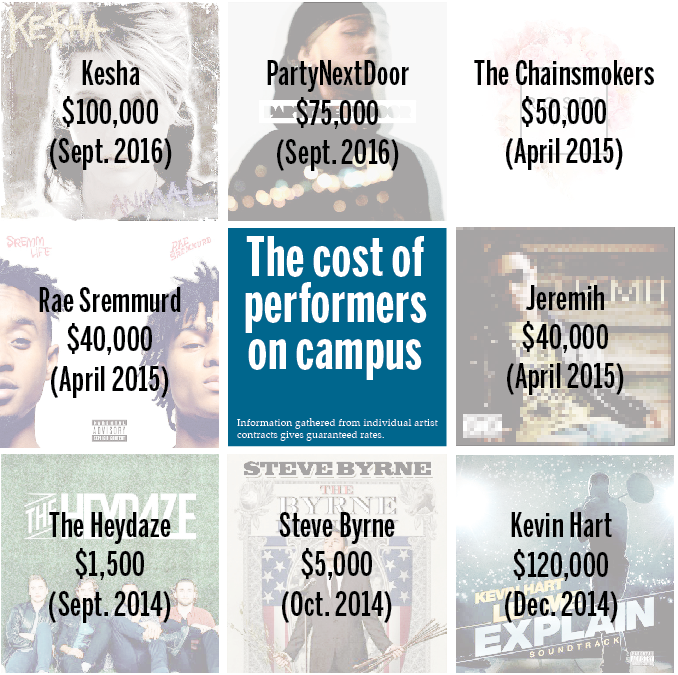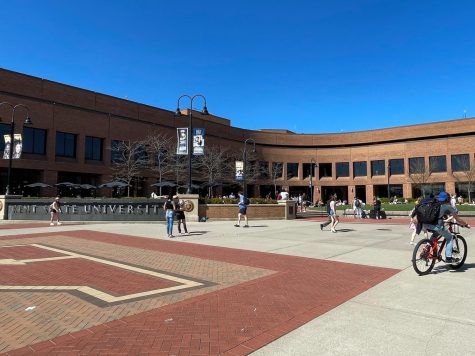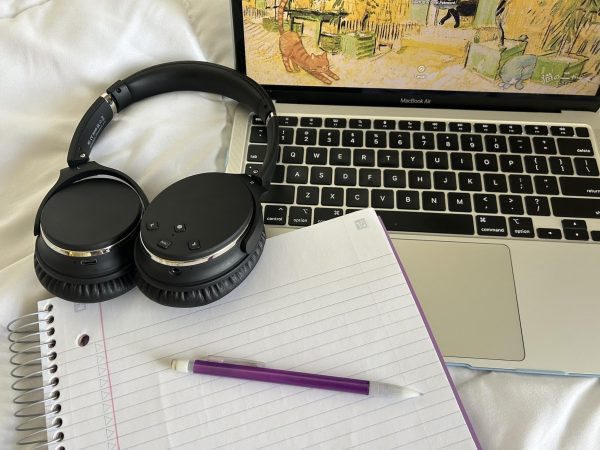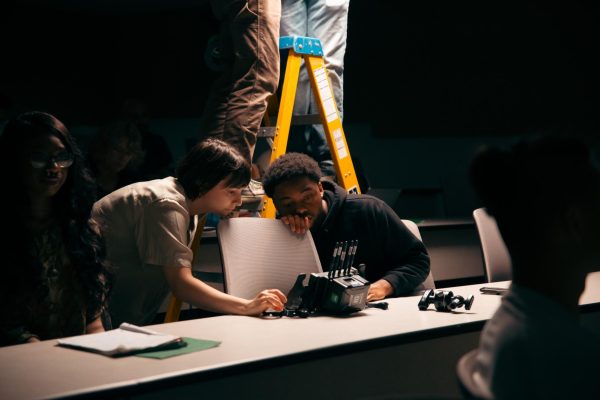USG spends student fees on performers
September 28, 2016
Kent State charged students about $360,000 in student activity fees for bringing various artists and performers to campus for the 2016-2017 academic year.
Each student paid a $205 activity fee for the academic year, according to Kent State’s official and approved list of university fees. For Thursday’s Kesha and PartyNextDoor concert, the university agreed to pay the artists a guaranteed compensation of $100,000 and $75,000 to perform, respectively.
There are 4,500 tickets available for sale and ticket prices, ranging from $35 to $45 for students and the general public. However, even for students who don’t attend, a portion of their student activity fee still goes toward bringing the artist to campus.
Donna Carlton, special coordinator for the division of student affairs at Kent State, said the money earned from ticket sales is then funneled back into the Undergraduate Student Government’s programming budget. That money goes to fund FlashFest, the final — and free — concert of the year for students to attend.
Carlton estimated USG’s programming budget is about $5,000 less this year, as opposed to the 2015-2016 academic year, which Carlton attributes to enrollment and the budget office.
According to documents obtained by The Kent Stater, the university paid artists and entertainers almost $300,000 for performances during the 2014-2015 calendar year, excluding the December 2015 performance by comedian Amy Schumer. This price tag included a $120,000 payout to bring comedian Kevin Hart in December 2014.
USG is instrumental in deciding which artists come to campus. USG receives a portion of the budget allocated through the Center for Student Involvement.
Samuel Graska, executive director of USG and senior biology major, said the compensation for artists comes from USG’s programming budget.
“The money allocated for programming funds is used for various artists throughout the year … and we get a percentage of a percentage from the student activity fee,” Graska said.
Student organizations, which include USG, receive 54 percent of the student activity fee and about 2.29 percent of the overall general fee paid by students — according to documents provided by Cindy Celaschi, a senior budget analyst in the University Budget Office — for the 2016-‘17 academic year, according to the USG Guidelines.
Students, however, are also charged for individual tickets prior to the performances held at Kent State, which can range anywhere from $15 to almost $50 per ticket.
Carlton said that even though students are paying a fee and concert tickets for the events, it is often cheaper than seeing the artist elsewhere.
“We have two major artists coming, so you’re looking at what you would pay in one ticket, and instead you’re getting two,” Carlton said. “Bringing it here on campus, you’re not paying parking fees and other behind-the-scene costs that go into going out to an event.”
While Kent State averages three to four major concerts and performances per semester, the amount spent per semester on acts and performances is not always equal.
The university spent a reported $168,000 in Fall 2014, compared to $130,000 in Spring 2015, according to documents obtained by The Kent Stater.
Clifford Glowacki, director of programming for USG and senior theatre studies major, said much of bringing artists to campus is based on their popularity and convenience to both them and the university. The difference in artist compensation is just a matter of when the contract is signed, Glowacki said.
“As far as that (deciding which artist to bring) goes, it just kind of depends on if they have a tour coming through, (or) if it’s a one-stop show kind of thing,” Glowacki said.
Glowacki also said Kent State and USG factor in new music or a new album when deciding who will perform.
“As (far as) money goes and how much the artists are paid, that is contractual information that is dealt by Kent State’s lawyers,” he said.
“Generally, contracts are confidential and … only discussed between the lawyers, and the artist has a copy (of the contract). Kent State has a copy, and there’s no way for me to access it,” Graska said. “In terms of getting this information, it’s strictly confidential.”
To view USG spending, public records requests must be submitted through the university and not requested from USG. The Kent Stater obtained 10 contracts of performances at Kent State over the past two years containing artist compensation, ticket fees and other legalities, which can be viewed on KentWired.
Carlton believes that coordinating concerts has become much harder than when she started almost a decade ago, due to artists fees increasing and production values increasing as well.
“It’s actually much more difficult,” Carlton said. “It’s certainly changed quite a bit.”
Matt Poe is a senior reporter, contact him at [email protected].
























